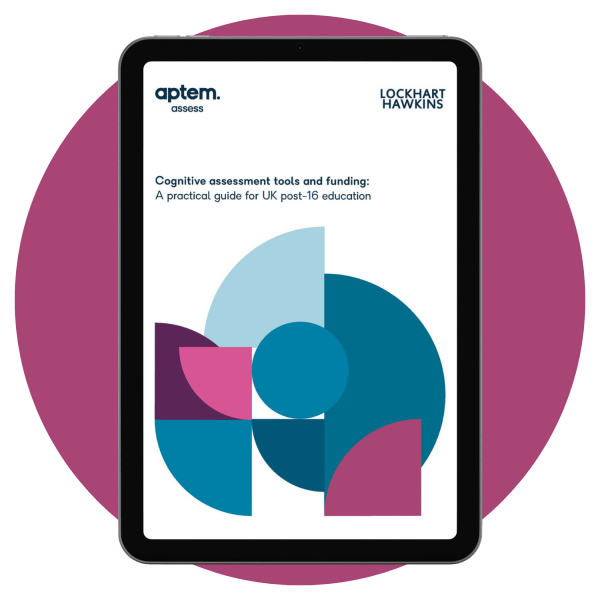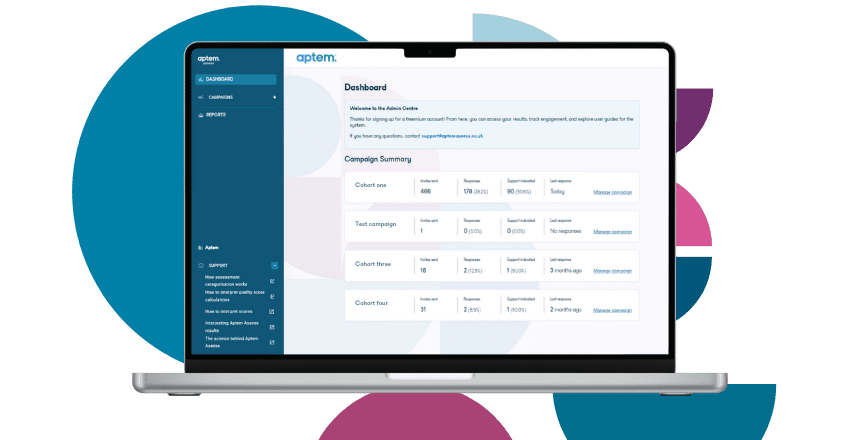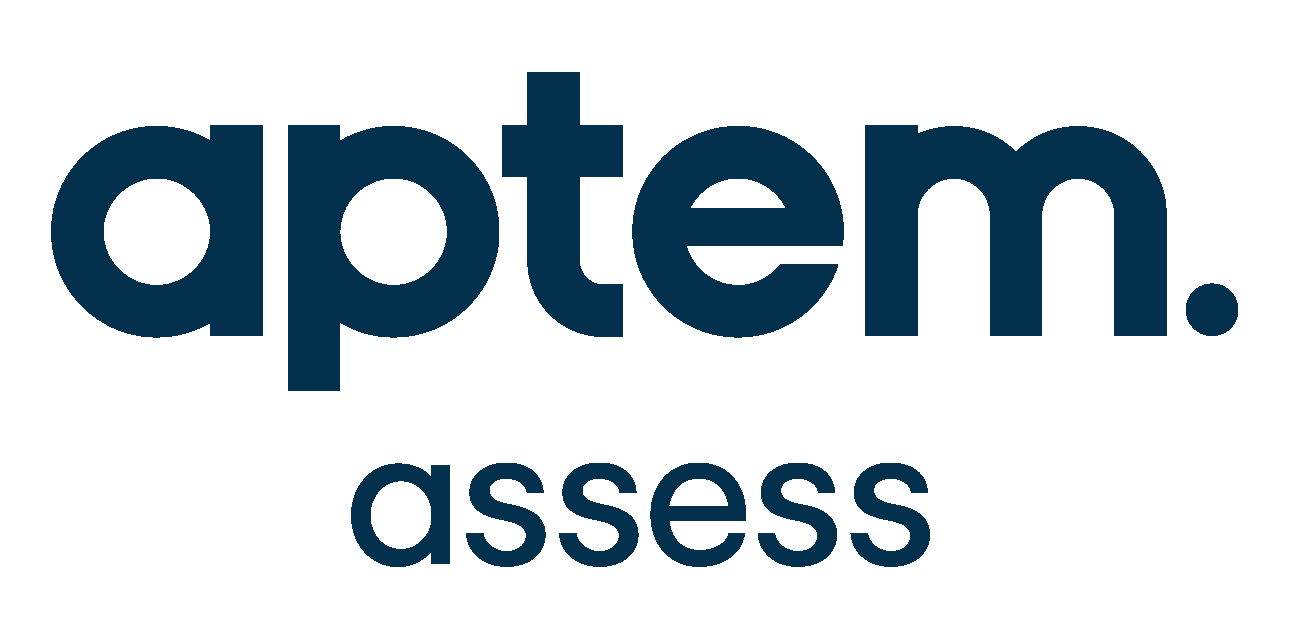Why download this guide?
Post-16 education providers face increasing pressure to identify learner needs, deliver personalised support, and evidence funding compliance.
This free eGuide shows you how cognitive assessment tools can help, while clarifying their role in the broader funding process.
What you'll learn
- Understand what funding bodies really require
- Avoid misconceptions about assessment and funding
- Build a sustainable learner support framework
- Improve learner outcomes while meeting compliance standards

Who is this guide for?
This resource is designed for:
- FE and sixth form colleges
- Apprenticeship providers
- Training organisations delivering study programmes, T Levels, or Adult Skills Fund courses
- Anyone responsible for learner support funding compliance

About the authors
Created by Aptem Assess in partnership with compliance and quality expert David Lockhart-Hawkins, this guide offers practical, actionable advice based on sector expertise.

Frequently asked questions
No. Cognitive assessments are valuable tools for identifying learner needs, but they don’t automatically entitle a learner to funding. Funding depends on demonstrating how the need affects the programme, planning and delivering support, and evidencing costs and outcomes.
Assessment tools provide objective, early insights into learner needs. This data helps justify support decisions, inform planning, and demonstrate systematic processes to funding bodies. However, full funding claims require additional evidence such as support plans, reviews, and cost tracking.
Post-16 education providers, including FE colleges, apprenticeship providers, and training organisations, benefit from using cognitive assessments to identify support needs early, improve learner outcomes, and strengthen compliance with funding requirements.
The most common misconceptions are:
Assessment results equal funding entitlement
More sophisticated tools guarantee funding success
Assessment tools provide all the evidence required
In reality, assessments are the first step in a wider framework of planning, delivery, review, and evidence.
Aptem Assess enables providers to identify learner needs quickly and objectively. It forms the foundation for building robust support plans and frameworks that help secure additional learning support funding while improving outcomes for learners.
Explore in depth

How science explains Specific Learning Difficulties
The Cattell-Horn-Carroll (CHC) model of cognitive abilities (e.g., Schneider & McGrew, 2012) provides an explanation of how different cognitive abilities relate to each other and …

Level 5 learners with functional skills at highest withdrawal risk
Apprentice learners who need to complete functional skills in English and Maths often struggle more with their apprenticeship programmes. They tend to fall behind schedule …

Functional skills modules have a negative impact on apprenticeship completion rates
Aptem’s study of over 160,000 apprentices highlights that functional skills modules in English and Maths negatively impact completion rates. Apprentices that have these modules as …

Apprentices with LLDD increase by 2.6% in two years
Aptem’s analysis shows that the percentage of apprentice learners reporting a learning difficulty or disability (LLDD) has risen dramatically over the past two academic years. …

Book a demo
The best way to find out if Aptem Assess is suitable for your organisation, is to arrange a demonstration with one of our friendly experts. They can take you through the assessment, show you the admin portal and answer any questions you may have.
